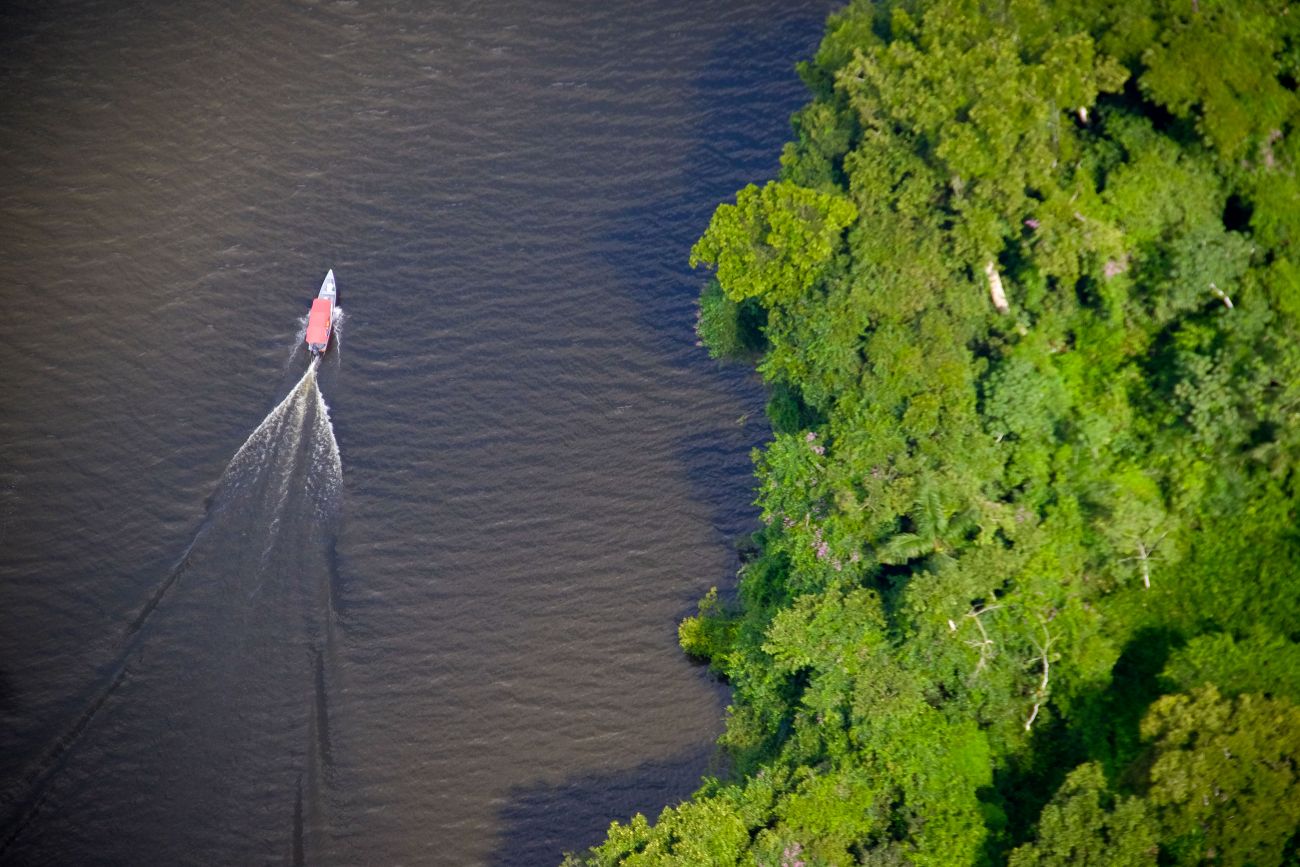Photo by Pedro Guerreiro (Agência Pará)
The Governors’ Climate and Forests Task Force, along with partners the Norwegian Climate and Forest Initiative (NICFI) and the United Nations Development Programme (UNDP) are excited to announce the first round of successful proposals to receive a total $5.5M in finance through the Innovation Funding Window under the Norway pledge to the GCF Task Force. Five jurisdictions will be implementing innovative approaches to achieve transformation in each of their landscapes across Ecuador, Mexico, Brazil, and Indonesia.
The Innovation Funding Window, also known as “Window B,” will support strategic jurisdictional initiatives to achieve transformations that reduce deforestation in forested landscapes of GCF Task Force member states and provinces. Support under this new funding window will be directed at interventions that are identified in the jurisdictional strategies and investment plans that GCF Task Force states and provinces completed under the Jurisdictional Strategies and Investment Plans Funding Window (Window A) of the Norway pledge
In Pastaza (Ecuador), the government will be working in partnership with 7 indigenous nationalities and local communities to implement their REDD+ strategy and action plan;
“For the Pastaza government, the support of Window B is essential for implementing effective actions in processes of sustainable development, conservation and environmental restoration in the provincial territory. It allows us to articulate effective work with nationalities regarding processes of gender equity and social and environmental safeguards. Undoubtedly, this financial contribution will allow us to initiate actions for the benefit of our PACHA MAMA, we are sure that working together will allow the achievement of more economic resources for the good living in our territory”.
David Alejandro Yedra, Environmental Engineer, Government of Pastaza
In Jalisco (Mexico), the government will work to reduce deforestation and degradation through the implementation of sustainable forest-grazing systems and the development of a deforestation-free beef model;
“Jalisco has made important efforts to stop deforestation and forest degradation. We have developed different policies, which have been strengthened thanks to the collaboration with Governor’s Climate and Forests Task Force. Window B will contribute to the consolidation of actions around the silvopastoral livestock model and the development of a deforestation-free meat label. This project will allow us to consolidate the public assets developed at the state level, but also will allow us to go further at the local level, developing innovative financial instruments, identifying income alternatives and a scaling route for the commercial scheme, contemplating at all times the inclusion of vulnerable groups”.
Sergio Graf Montero, Secretary of Environment and Territorial Development of Jalisco
In Yucatán (Mexico) the government will be implementing sustainable entrepreneurship approaches for rural development focused on milpa maya, beekeeping, and other traditional indigenous forestry practices as well as strengthening biocultural payments for ecosystem services;
“This project will promote and support all the activities and strategies, related to sustainable and low emission rural development in Yucatán. And also, will helps us empower communities to value their natural resources and to generate sustainable productive projects that guarantee that these resources not only provide ecosystem services for the entire state, but for the entire planet, and also generate greater social and economic well-being for these communities, which are our allies”.
Sayda Rodríguez, Secretary of Urban Development & Environment of Yucatán
In Pará (Brazil), the government will use cutting-edge technology to scale up a beef traceability system to support a carbon neutral territory as well as develop a strategy to strengthen the state’s forest-based bioeconomy;
“With this approval, Pará will be able to accelerate in two important fronts: In the implementation of the State Plan Amazon Now, involving the traceability of the livestock chain, where we have made recent progress with the launch of the Green Seal; As well as the Bioeconomy agenda, in which we are in the process of building our State Strategy for Bioeconomy. All these agendas are aimed at achieving the objectives of the State Plan Amazon Now, which is the sustainable economic development of the state, generating income and guaranteeing the protection of our forest.
Mauro O’ de Almeida, Secretary of Environment of Pará
In West Kalimantan (Indonesia), the government will be implementing a sustainable jurisdictional model in the district of Kubu Raya, including public-private partnerships for sustainable agriculture as well as forest, mangrove, and peatland rehabilitation;
Each of these jurisdictions will build on the strategies and investment plans already developed with support under Window A and the multi-stakeholder approaches to strengthen partnerships, including with private sector as well as Indigenous and local communities, to achieve the protection of tropical forests and promote sustainable, low-emissions development at the jurisdictional scale.

